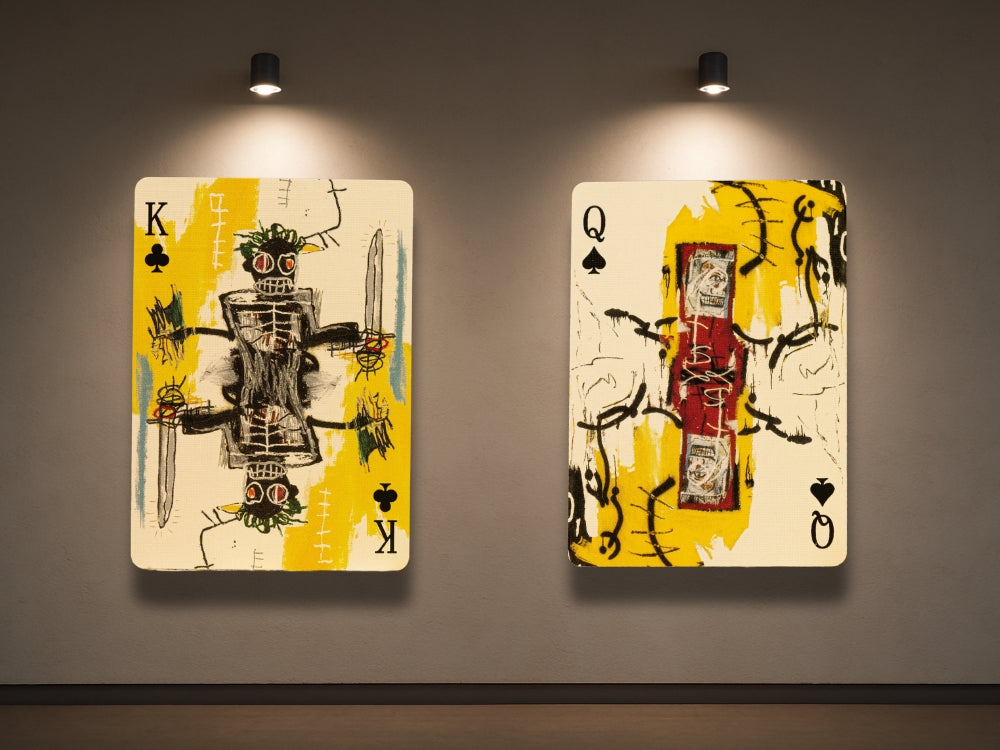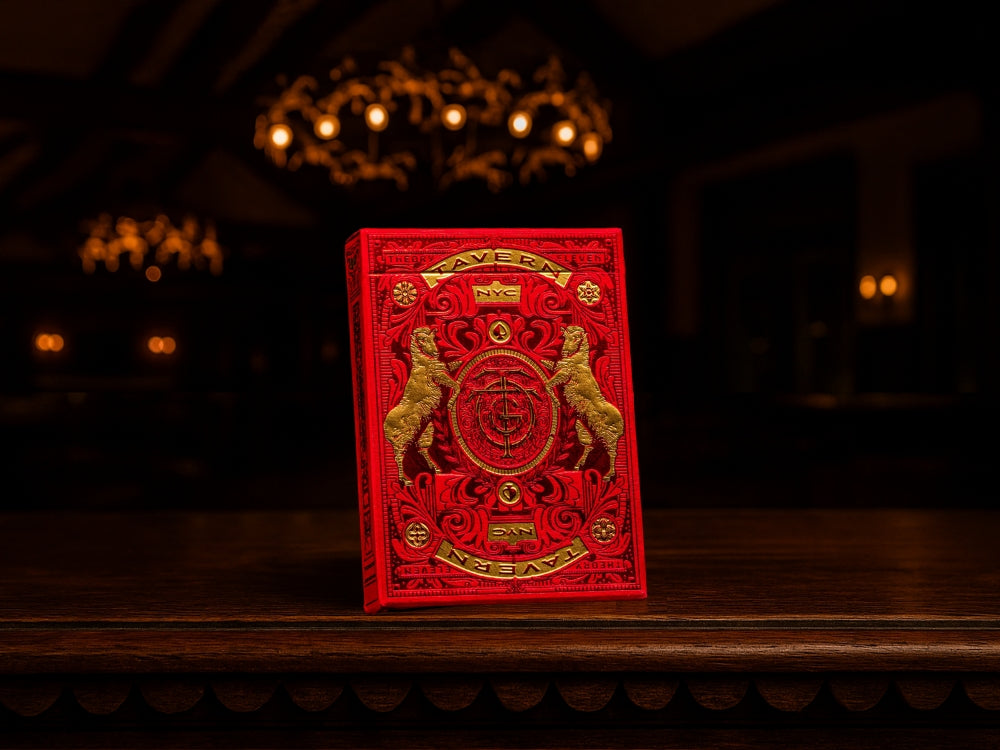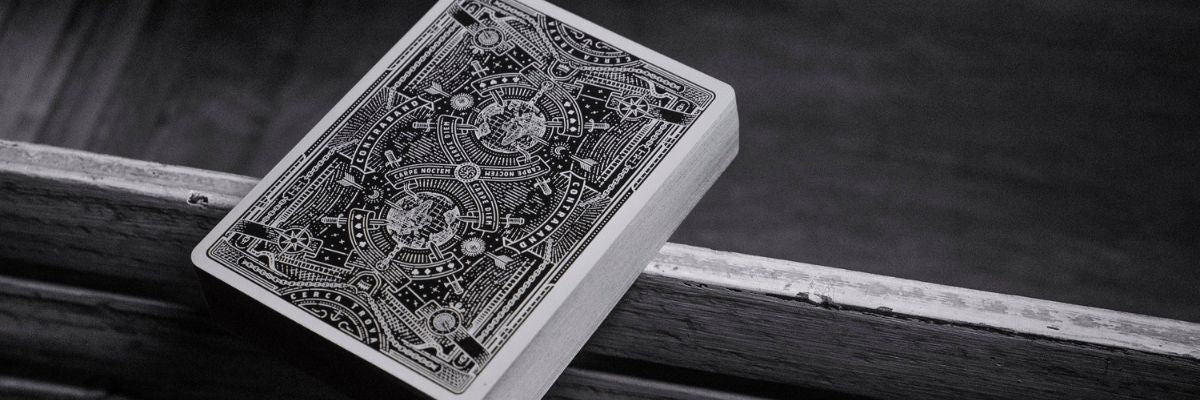If you love stories, chances are you’ve stumbled across books featuring playing cards without even realising it. They pop up in all kinds of places: mystery novels, fantasy adventures, historical dramas – sometimes front and centre, sometimes hiding in the background like a quiet observer. I’ve always found that really clever. A deck of cards can say so much with so little: chance, fate, power, disguise, even danger. And when an author brings that into a book, it adds this extra little spark. A twist you didn’t see coming.
From Wonderland to murder
Lewis Carroll didn’t hold back with Alice in Wonderland. The playing card suits are everywhere; not just mentioned, but brought to life. You’ve got Spades for gardeners, Clubs as soldiers, Diamonds in royal court roles, and Hearts forming the Queen’s terrifying entourage. The whole pack turns into a chaotic kingdom, where card suits double as social class, and the Queen of Hearts is as absurd and unhinged as any fantasy villain could hope to be.
Then there’s The Solitaire Mystery by Jostein Gaarder, a surreal and imaginative story built around a 53-card deck, including the Joker, who throws a few existential curveballs. It follows a boy’s search for meaning, and along the way, you meet playing cards imagined as people with quirks and philosophies of their own. The way it links cards to time, identity and fate is honestly fascinating.
Things take a darker turn in The Playing Card Killer by Russell James. A killer leaves cards at crime scenes, each more disturbing than the last. It’s the sort of book you read with the lights on, gripping the pages. And yes, the cards play a key role in the mystery itself – not just as props, but as psychological breadcrumbs.
Not just a game
Sometimes it’s not the whole story that revolves around cards, it’s one unforgettable scene. Take the poker game in Fahrenheit 451, where the firemen are mid-hand, and Montag is secretly hiding books at home. Every glance, every shuffle feels loaded with tension. It’s not just a card game – it’s a countdown.
Same goes for Lily Bart in The House of Mirth, playing bridge like her life depends on it (because, in a way, it does). Or Pip in Great Expectations, getting humiliated by Estella for calling knaves “Jacks.” It’s such a small detail, but it cuts. In these stories, cards reveal class, character, and the unspoken rules everyone’s playing by.
And then there’s Jane Austen using card games like Speculation and Whist as stand-ins for courtship, status, and cleverness. When her characters sit down to play, it’s rarely just for fun. Every move is loaded with strategy, flirtation, or quiet rebellion. It’s the literary equivalent of raising the stakes without saying a word.
Familiar titles, hidden layers
You’ve probably noticed how often playing cards pop up in book titles. Cards on the Table, Ace of Spades, The Cardturner. The titles alone are intriguing. And while these books aren’t all about cards, authors seem drawn to that familiar imagery because it brings something extra: a sense of mystery, elegance, or danger. Cards are instantly recognisable, but they hint at something hidden. And that’s catnip for crime fiction, fantasy, and thrillers.
And of course, there are the newer titles like Ace of Spades, a YA dark academia thriller that takes the symbolism of cards and runs with it; secrets, power plays, social masks and all.
It’s no wonder so many premium playing cards draw inspiration from classic stories – the connection between fiction and the deck runs deep.
Judging a book by its cover
I’ll admit it – I’m someone who gets completely drawn in by a great book cover. You’re not supposed to judge a book by it, but come on, some covers are just too good to ignore. That’s probably why I love the idea of playing cards that tie back to stories. It’s like holding a mini version of the world you’ve just read about.
The Harry Potter playing cards have a special place in my heart. I grew up with the books and the films, so opening that deck feels oddly nostalgic. Same goes for the Lord of the Rings playing cards – all that sweeping fantasy, captured in gold-inked borders and careful illustrations. And those are just a couple of the Theory11 playing cards – there’s a whole universe of decks out there, each one opening the door to a different world.
More than just a card
I think that’s why books featuring playing cards are so intriguing. They reflect life in such a simple, symbolic way. Chance. Choice. Hidden identities. Winning big. Losing everything. Authors tap into all of that, often without spelling it out. And for those of us who love both stories and cards, it adds an extra layer of meaning.
If a story ever makes you see your deck a little differently – or a single card sparks an idea – follow that instinct. Some of the best adventures begin with just one shuffle.




